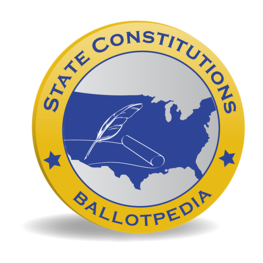| “
|
Sec. 127. Succession to office of governor; filling of vacancy when offices of governor and lieutenant governor both vacant; procedure when governor or successor impeached, ab- sent from state, disabled, etc.; failure of governor-elect, lieutenant governor-elect, etc., to qualify.
In case of the governor’s removal from office, death or resignation, the lieutenant governor shall become governor. If both the governor and lieutenant governor be removed from office, die or resign more than sixty days prior to the next general election, at which any state officers are to be elected, a governor and lieutenant governor shall be elected at such election for the unexpired term, and in the event of a vacancy in the office, caused by the removal from office, death or resignation of the governor and lieutenant governor, pending such vacancy and until their successors shall be elected and qualified, the office of governor shall be held and administered by either the president pro tem. of the senate, speaker of the house of representatives, attorney-general, state auditor, secretary of state, or state treasurer in the order herein named. In case of the impeachment of the governor, his absence from the state for more than twenty days, unsoundness of mind, or other disability, the power and authority of the office shall, until the governor is acquitted, returns to the state, or is restored to his mind, or relieved from other disability, devolve in the order herein named, upon the lieutenant governor, president pro tem. of the senate, speaker of the house of representatives, attorney-general, state auditor, secretary of state, and state treasurer. If any of these officers be under any of the disabilities herein specified, the office of the governor shall be administered in the order named by such of these officers as may be free from such disability. If the governor shall be absent from the state over twenty days, the secretary of state shall notify the lieutenant governor, who shall enter upon the duties of governor; if both the governor and lieutenant governor shall be absent from the state over twenty days, the secretary of state shall notify the president pro tem. of the senate, who shall enter upon the duties of governor, and so on, in case of such absence, he shall notify each of the other officers named in their order, who shall discharge the duties of the office until the governor or other officer entitled to administer the office in succession to the governor returns. If the governor-elect fail or refuse from any cause to qualify, the lieutenant governor- elect shall qualify and exercise the duties of governor until the governor- elect qualifies; and in the event both the governor-elect and the lieutenant governor- elect from any cause fail to qualify, the president pro tem. of the senate, the speaker of the house of representatives, the attorney-general, state auditor, secretary of state, and state treasurer, shall, in like manner, in the order named, administer the office until the governor-elect or lieutenant governor- elect qualifies.[1]
|
”
|



